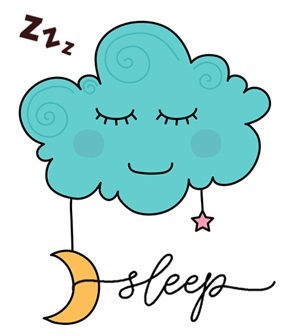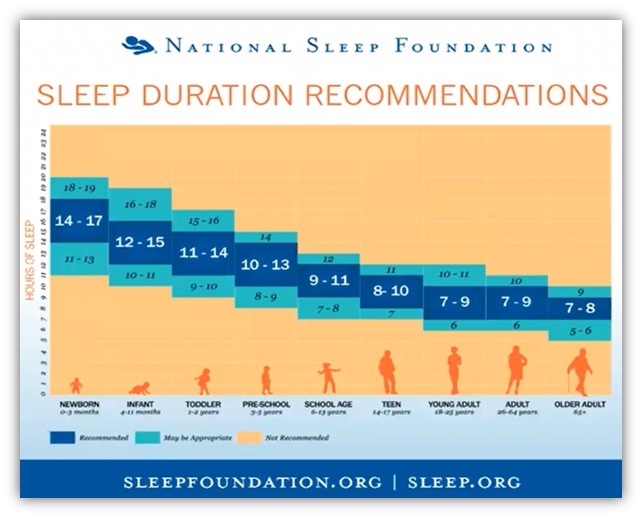Latest News
Sleep
Posted on: 12/06/2020
During the coronavirus pandemic, many people have found their sleep patterns have been disrupted due to stress, worry, and no longer going out to school or work. Such a disruption can especially impact children and adults who are sensitive to changes in routine. If your child’s usual sleep patterns have gone off-course during the pandemic, be reassured that you are not alone in this.
Why is sleep important?
We need to sleep so that our body can prepare for being fit and ready for a new day by building energy, fixing and repairing.

How much sleep do we need?

Here are some ways to reduce bedtime and sleeping problems:
- Have a wind-down routine. Routine is the most important factor in getting a good night's sleep. Ideally, we should have the same sleep / wake time 7 days a week.
- Establish and maintain a bedtime routine each evening that is short and predictable for your child.
- Reduce stimulation around bedtime - keep devices out of the bedroom. Some research suggests that the blue light emitted from screens suppresses melatonin, an important hormone which helps regulate our sleep and wake pattern. Turning off all screens (television, phones, tablets, etc.) 1 hour before bedtime will help. Read together instead.
- Exercise! Exercise earlier in the day helps you sleep better at night and also boosts the immune system. Children and adults who exercise find it easier to fall asleep at night and have deeper sleep.
- Worry time / put-the-day-to-rest time: If your child is often anxious at night time or finds worries and fears to talk about when they get into bed, set aside time earlier in the evening, away from the bedroom, to talk about anxieties, worries and fears. Help them to understand their anxiety, worries and fears and plan a way to deal with them together.
- Have a clear message: Night-time is for bedtime and bedtime is for sleeping.
Additional information:
Healthy Sleep Tips from The NHS
Sleep Advice During the Coronavirus Pandemic


